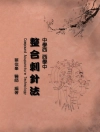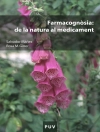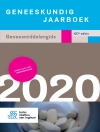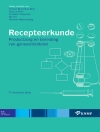This book includes an international group of researchers who present the latest achievements in the field of enzyme, immune system, and microbial and nano-biosensors. It highlights the experimental evidence for formation of biological fuel cells (BFCs)-which has a dual purpose – as a device that produces electricity and the systems which produce it simultaneously cleaning up the environment from polluting organic compounds. Considering the work in the field of macro, micro and nano-biosensors, considerable attention is paid to the use of nanomaterials for the modification of working electrodes. Nanomaterials in some cases can significantly improve the parameters of analytical systems. Readers will be interested in the projection of the presented theoretical and experimental materials in the field of practical application of modern analytical developments. The presented results in many cases imply the possibility of using the created models of macro, micro and nano-biosensors, and biofuel elements in the field of health, and protection/restoration of the environment.
It includes information about all existing types of transducers of signals in biosensors – electrochemical, optical and quantum-optics, thermoelectric, data of atomic force microscopy, piezoelectric, and more. On the basis of these principles, descriptions are given about the functioning of macro, micro and nano- biosensors for the detection of compounds used in medicine, detection of compounds that clog the environment, and thus affect human health, for compounds that are potentially the basis for the production of drugs, for the selection of compounds that have medicinal activity, for immunodetection, and to assess the quality of food. These questions form the basis of research carried out in the field of biosensors in the world. Since the described models of biosensors have high sensitivity, high measurement speed and selectivity, the described results attract the attention of both the ordinary reader and business class specialists who create and implement analytical technologies. This book is very useful for researchers in life sciences, chemical sciences, physics, and engineering. In addition, it will be useful for the persons working in industry.
Advanced technologies specialists will be attracted by the novelty of the proposed solutions and their relevance and ease of implementation. Since the studies contain sections describing the parameters of different biosensors, BFCs, they are easily navigated into assessing the effectiveness of the practical use of the proposed device. The relevant sections indicate such characteristics as detection ranges, life span, type of biological material used, the method of formation of the bio-receptor part. These parameters are of interest to both developers of new models of biosensors and BFC, and their manufacturers.
Table des matières
Macro-, micro- and nanosensors based on biological / chemical materials.- Bactericidal, fungicidal and immunomodulating activity of nano-surfaces.- Enzymatic Tissue Biotests (MAO and ACh E biotests) and Bioindicators.- Is it possible to detect less than one bacterial cell?.- SERS for bacterial, virus and protein bio-sensing.- Biosensors for virus detection.- Specific immobilization of rotaviruses for atomic force microscopy with using Langmuir antibody films based on amphiphilic polyelectrolytes.- Fluorimetric and SERS sensor systems for diagnostics and monitoring of catecholamines-dependent diseases.- Enhanced sensitivity rapid tests for the detection of sepsis marker procalcitonin.- Analytical capabilities of some biosensors for the determination of drugs.- Electrochemical DNA sensors based on nanostructured polymeric materials for determination of antitumor drugs.- Variants of amperometric biosensors in the determination ofsome micotoxins: analytical capabilities.- New class of diagnostic systems based on polyelectrolyte microcapsules for urea detection.- Bioluminescent nano- and micro-biosensing elements for detection of organophosphorous compounds.- Nano- and microelectrochemical biosensors for determining blood glucose.- Micro-Electrochemical SMBG Biosensor Chip Design Development for Sustainable Mass Production based on the Strategic Platform Patent Map.- Biological Fuel Cells: Applications in Health Service and Ecology.- Recent Trends in Fabrication and Applications of Wearable Bioelectronics for Early-Stage Disease Monitoring and Diagnosis.- Self-powered biosensors in medicine and ecology.- Self-powered implantable biosensors – a review of recent advancements and future perspectives.
A propos de l’auteur
Professor Mahendra Rai is a Basic Science Research Faculty Fellow at Department of Biotechnology, Amravati University in Maharashtra, India. He has published more than 400 research publications, 100 popular articles in journals of high repute and around 55 books from reputed publishers like Elsevier, CABI, Springer, CRC, Taylor and Francis, Wiley and Scientific Publisher. He has received several prestigious awards, including the father T.A. Mathias award (1989) from the All India Association for Christian Higher Education, and the Medini award (1999) from the Department of Environment and Forest, Government of India. He also received SERC visiting fellowship by Department of Science and Technology (1996), INSA visiting fellowship by Indian National Science Academy (1998) and TWAS-UNESCO Associateship (2002), Italy. Dr. Rai serves as a referee for more than 20 international journals and is a member of editorial board of more than ten national and international journals. He hasapproximately three decades of teaching and research experience. The main focus of his research is nanobiotechnology, nanobiosensors, and nanobased bioactives against human pathogenic microbes.
Professor Anatoly Reshetilov has a Ph.D. in Physics and Mathematics and Doctoral degree in Analytical Biotechnology . He is a leading research scientist of the Federal Research Center Pushchino Scientific Center for Biological Research of the Russian Academy of Sciences G.K. Skryabin Institute of Biochemistry and Physiology of Microorganisms Russian Academy of Sciences. At present he is the Head of the Laboratory of Biosensors. The scope of his work includes: Analytical biotechnology, analytical biochemistry; application of enzymes, microorganisms, immunoactive components (antibodies/antigens) for development of recognition elements of biosensors. Construction of portable analytical biosensor based systems for detection of water quality, soil pollution; risk assessment;medical, biological analysis; control of biotechnological processes. Evaluation of laboratory scale model biosensors in practical conditions. Development of the microbial fuel cells. He is the author and co-author in more than 250 scientific papers and patents in Russian and foreign publications.
Dr. Yulia Viktorovna Plekhanova is researcher in the Federal research center “Pushchino scientific center for biological research of the Russian Academy of Sciences”, G.K. Skryabin Institute of Biochemistry and Physiology of Microorganisms, Pushchino, Russia. She is Ph.D. in Biological Sciences. Her interest and experience mainly include preparation of biosensors with electrochemical principle of detection, the effect of modifications of graphite electrodes by various nanomaterials (multi-walled carbon nanotubes, metal particles, etc.) on the properties and characteristics of biosensors. She utilizes a variety of electroanalytical techniques (linear polarization, cyclic voltammetry, impedance spectroscopy) to study enzymes and bacterial cells. She explores the properties and possibilities of microbial biofuel cells as potential power source for biomedical accessories and wastewaters purification. She is the co-author of 5 patents, more than 40 articles in domestic and foreign journals and participant of Russian and international conferences.
Dr Avinash P. Ingle is a Post-Doctoral Fellow at Department of Biotechnology, Engineering School of Lorena, University of São Paulo, Lorena, SP., Brazil. He has completed his doctoral degree from Department of Biotechnology, Sant Gadge Baba Amravati University, Amravati, Maharashtra, India. He had worked as Research Scientist in the same department from 2013-2016. He has more than 70 research publications, 45 book chapters and 6 books to his credit. Dr. Ingle serving as a referee for more than 20 international journals and is a member of editorial board of about 5 national and international journals. Currently, Dr. Ingle is actively engaged in development nanotechnology-based methods for the efficient production of biofuels and his research interest include utilization of nanomaterials for different applications in medicines, biofuels and agriculture.












